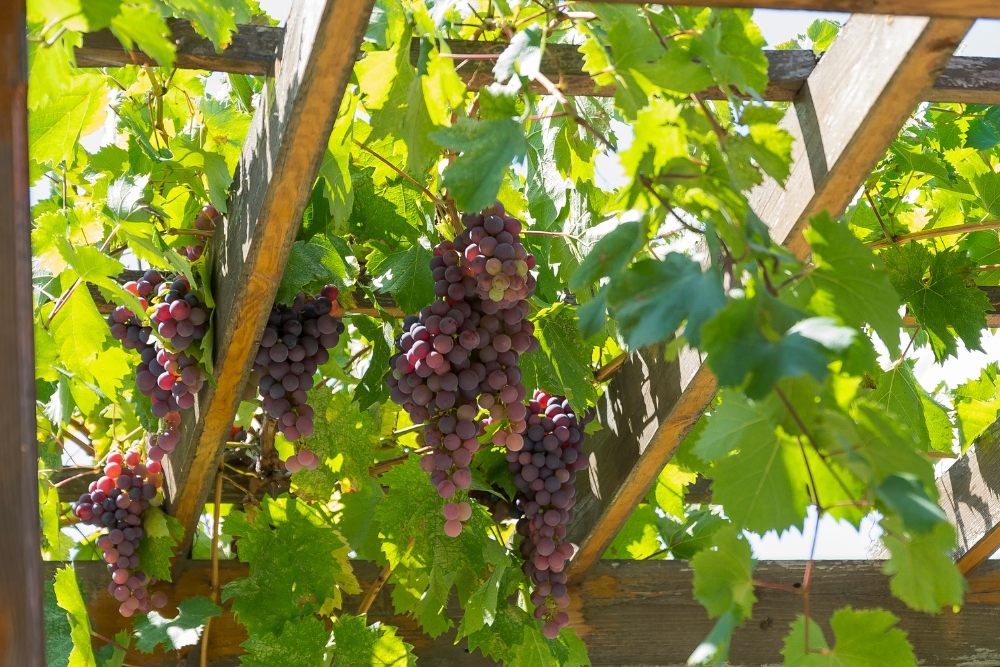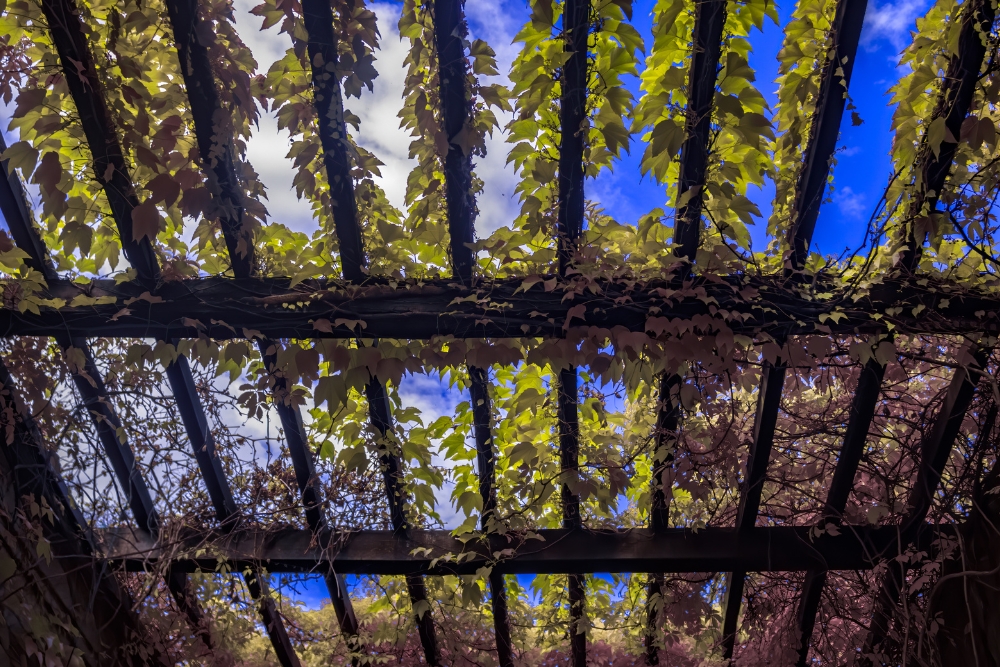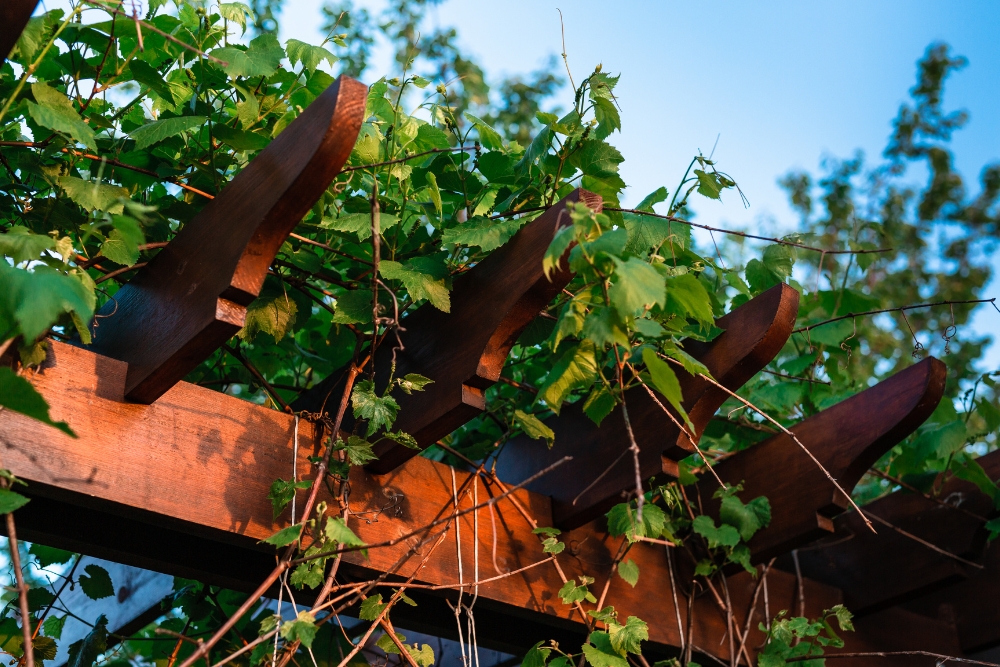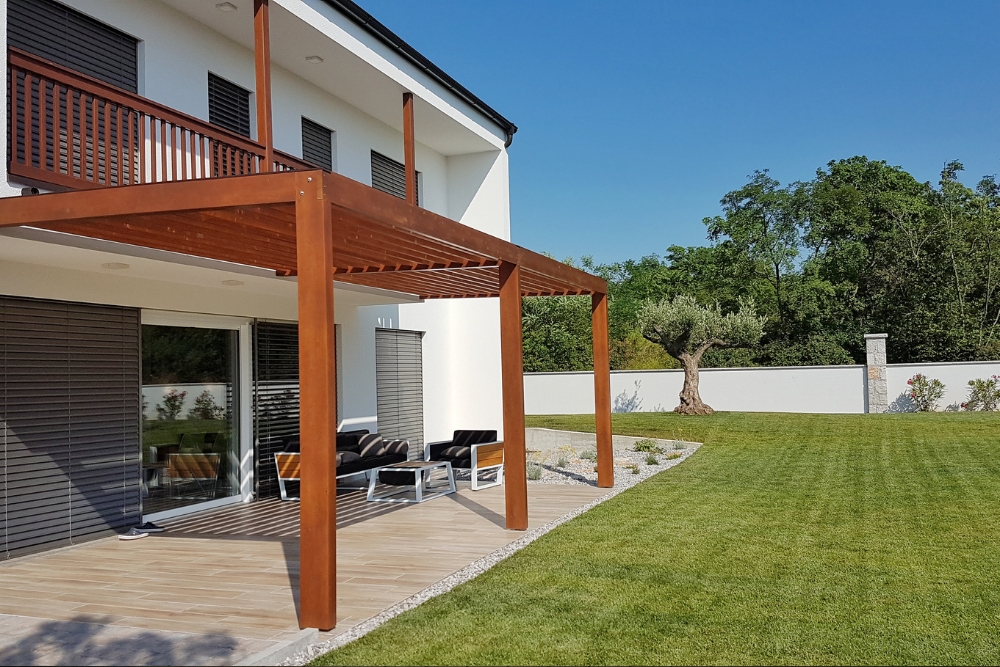Creating a stunning pergola for your own slice of the great outdoors is all the more rewarding when you do it with Mother Nature in mind. Like many Aussies who take pride in their backyards, we too have grappled with choosing building materials that reflect our passion for the environment.
After plenty of good old-fashioned research and a fair bit of legwork, we’re chuffed to share our insights on sustainably sourced timber – it’s your ticket to crafting an outdoor haven that respects our planet.
So grab a cuppa and join us as we explore ways to leave only gentle thumbprints on earth while making your backyard beaut!
Key Takeaways
- Sustainable forestry practices involve managing forests to meet present needs without compromising future generations’ ability to do the same, hence crucial for wooden pergola construction.
- Using certified sustainable wood in pergola construction reduces environmental impact, supports responsible forest management, and aids in preserving natural habitats and biodiversity.
- Selecting sustainably sourced timber options like softwoods (pine and cedar) and hardwoods (teak and mahogany) promotes ethical timber sourcing while ensuring durable and eco-friendly pergolas.
Understanding Sustainable Forestry Practices
Sustainable forestry involves managing forests in a way that meets the needs of the present without compromising the ability of future generations to meet their own needs. It’s important to use sustainable timber in pergola construction as it reduces environmental impact and supports responsible forest management.

Definition of sustainable forestry
Sustainable forestry is a way of managing our forests so they stay healthy and bountiful for future generations. We make sure that when we take timber from the woods, it doesn’t harm the environment or wildlife.
It’s all about balance – cutting down trees at a rate where the forest can recover naturally, protecting water resources, and not disrupting local communities.
Practising sustainable forestry means we’re using wood in a way that respects nature’s limits and social impacts. This includes everything from carefully planning which trees to harvest to making sure workers have safe conditions.
It ensures the timber used in our pergolas comes from forests that are looked after properly, making them part of an eco-friendly choice for our homes and backyards. Responsible logging practices play into this big time; by choosing certified sustainable wood, you’re supporting responsible forest management that keeps those green havens thriving while securing renewable timber resources for years to come.
How it benefits the environment
Sustainable forestry practices in wooden pergola construction benefit the environment by reducing deforestation and preserving natural habitats for diverse wildlife. By using timber from sustainable sources, we can help protect endangered species and maintain the balance of ecosystems.
Additionally, responsible timber harvesting contributes to mitigating climate change as trees absorb carbon dioxide from the atmosphere, thus reducing greenhouse gas emissions.
Choosing eco-friendly products for pergola construction supports sustainable forestry practices and helps conserve natural resources. Using certified sustainable wood not only ensures the longevity of your pergola but also promotes ethical practices within the timber industry.
It’s crucial to consider these environmental benefits when making decisions about wooden pergolas and their construction materials.
Importance of using sustainable timber in construction
Using sustainable timber in construction is crucial for minimising environmental impact, preserving biodiversity, and promoting ethical practices. When sourcing timber from sustainable forestry practices, we support the conservation of endangered species and reduce our carbon footprint.
By choosing certified sustainable wood, we contribute to long-lasting and environmentally friendly pergola structures that align with eco-friendly living principles, ensuring the protection of natural resources for future generations.
Selecting sustainably sourced timber options for pergolas not only benefits the environment but also ensures the longevity of the structure by using materials that have been ethically harvested.
Sustainable Timber Options for Pergolas
When it comes to choosing sustainable timber for pergolas, there are several options to consider. From softwoods like pine and spruce to sustainably sourced hardwoods such as teak and mahogany, there’s no shortage of eco-friendly choices for your construction project.
Additionally, certified sustainable wood from programs like the Forest Stewardship Council (FSC) ensures that the timber has been responsibly harvested and managed.
Softwoods
Softwoods, such as pine and cedar, are popular timber options for pergolas due to their natural resistance to decay and insects. These sustainable timber choices are readily available and can be sourced from certified sustainable forestry programs.
Using softwoods in pergola construction not only provides a durable structure but also supports ethical wood-sourcing practices. By selecting sustainably harvested softwoods for your pergola, you contribute to the preservation of forests and ecosystems while enjoying a long-lasting outdoor space.
Moving on to the next section, let’s explore sustainably sourced hardwoods for eco-friendly pergola options.
Sustainably sourced hardwoods
When choosing wood for your pergola, consider sustainably sourced hardwoods that are harvested in an environmentally responsible manner. Sustainable forestry practices ensure the longevity of forests and minimise environmental impact.
Hardwoods like teak, oak, and mahogany are durable choices that can be responsibly harvested to create beautiful and long-lasting pergolas.
By opting for sustainably sourced hardwoods, you can support ethical timber sourcing while enjoying a stunning outdoor structure that contributes to environmental preservation. It’s essential to select materials that align with sustainable forestry practices to promote responsible construction methods.
Certified sustainable wood
Choosing certified sustainable wood for your pergola construction ensures that the timber has been responsibly sourced and harvested, promoting ethical forestry practices. Certified sustainable wood comes from forests managed to meet the social, economic, and ecological needs of present and future generations.
By selecting certified sustainable wood, you can support environmentally friendly construction methods while enjoying a beautiful and long-lasting pergola.
When we use certified sustainable wood in our construction projects, we contribute to the preservation of biodiversity and help reduce our carbon footprint. It’s important for us as homeowners to prioritise using timber that is ethically sourced so that we can enjoy our outdoor spaces knowing that they are built with environmentally advantageous materials.

Eco-Friendly Construction Practices for Pergolas
We will discuss the ethical sourcing of timber, the use of non-toxic materials, and the minimising waste and emissions in pergola construction. Click to read more about sustainable forestry practices in wooden pergola construction!
Ethical sourcing of timber
To ensure sustainability, we choose timber from sources that follow ethical and environmentally responsible harvesting practices. This helps protect endangered species and reduces deforestation.
By using certified sustainable wood, we promote the preservation of biodiversity and support forest ecosystems.
Now let’s explore how to use non-toxic materials in building eco-friendly pergolas.
Use of non-toxic materials
We prioritise the use of non-toxic materials in pergola construction to safeguard your family’s health and the environment. By opting for non-toxic paints, stains, and sealants, we ensure that harmful chemicals are kept out of your outdoor space.
Non-toxic materials also minimise off-gassing and promote a healthier living environment. When selecting building materials, look for those with third-party certifications such as Green Seal or EcoLogo to guarantee their eco-friendliness.
Incorporating non-toxic materials into our pergola construction not only assures the safety of your loved ones but also reduces environmental impact. Choosing products free from harmful chemicals supports sustainable forestry practices by preventing pollution and promoting responsible manufacturing processes that focus on protecting the ecosystem.
Minimising waste and emissions
Transitioning from the use of non-toxic materials to minimising waste and emissions, we can further enhance the environmental impact of our wooden pergola construction. By carefully planning and managing our construction process, we can significantly reduce waste generation and emissions released into the environment.
Opting for precise measurements and careful timber cutting during construction allows us to minimise unnecessary wastage. Additionally, choosing sustainably sourced timber reduces environmental impact while proper disposal of any generated waste further minimises harm to the environment.
Embracing eco-friendly practices such as recycling and reusing materials whenever possible also contributes to reducing overall waste production in pergola construction projects. Moreover, selecting local sustainable timber options lessens transportation-related emissions, creating a more environmentally advantageous approach to building wooden pergolas.
Sustainable Furniture and Decor for Pergolas
When it comes to furnishing and decorating your pergola, consider using environmentally friendly materials such as bamboo, reclaimed wood or recycled plastic. Incorporating solar panels and energy-efficient lighting can also help reduce your pergola’s environmental impact.
Choosing environmentally friendly materials
When selecting materials for your pergola, consider using sustainably sourced wood such as FSC-certified timber. This ensures that the timber comes from responsibly managed forests, promoting biodiversity and ethical practices.
You can also opt for recycled or reclaimed wood, reducing the need for new resource extraction while giving a second life to existing materials.
For eco-friendly options, explore composite decking made from recycled plastic and wood fibres or bamboo, both durable and sustainable choices. Incorporating solar panels and utilising energy-efficient lighting fixtures will further enhance the environmental friendliness of your pergola.
Incorporating solar panels
We should consider incorporating solar panels into our pergola design. Solar panels can provide renewable energy for lighting and other electrical needs, reducing our reliance on traditional power sources and lowering energy costs.
With advancements in technology, solar panels have become more affordable and efficient, making them a practical addition to any sustainable pergola construction project.
By harnessing the power of the sun, we can significantly reduce our environmental impact while enjoying the benefits of clean energy. Solar panels also align with sustainable forestry practices by further reducing the carbon footprint of our outdoor space.
Additionally, integrating solar panels into our pergola supports the use of environmentally friendly materials and enhances its overall sustainability.
Using energy-efficient lighting
When constructing a wooden pergola, consider using energy-efficient lighting to reduce electricity consumption. LED lights are an eco-friendly option that can illuminate the space effectively while consuming less energy, contributing to sustainable forestry practices.
Incorporating solar-powered lighting fixtures is another environmentally advantageous choice for pergolas, aligning to reduce carbon footprint and promote ethical practices in timber construction.
Opt for energy-efficient lighting such as LED or solar-powered fixtures when designing your pergola to minimise environmental impact and promote sustainability in timber construction.
The Importance of Supporting Sustainable Forestry
Supporting sustainable forestry is crucial for reducing our carbon footprint, preserving biodiversity, and promoting ethical practices in the timber industry. By choosing to use sustainably sourced wood in construction projects like pergolas, homeowners can play a significant role in protecting the environment and supporting responsible land management.

Reducing carbon footprint
Reducing our carbon footprint is vital for preserving the environment. By choosing sustainable timber for your pergola construction, you actively contribute to this effort. Sustainable forestry practices minimise deforestation and help reduce carbon dioxide levels in the atmosphere, as trees absorb this greenhouse gas during their growth.
Opting for certified sustainable wood or eco-friendly materials in your pergola’s construction can significantly decrease the environmental impact of your outdoor space while supporting ethical and responsible forestry management.
Incorporating sustainable timber options into your pergola not only enhances its environmental advantage but also promotes long-term sustainability. Choosing environmentally friendly materials and supporting sustainable forestry practices are simple yet effective ways to reduce our carbon footprint and contribute to a healthier planet.
Preserving biodiversity
Preserving biodiversity is crucial in sustainable forestry practices for wooden pergola construction. By choosing sustainably sourced timber, we can help protect endangered species and preserve the natural balance of ecosystems.
Opting for certified sustainable wood ensures that the timber used in building your pergola comes from responsibly managed forests, further contributing to the protection of diverse plant and animal species.
Promoting ethical practices by selecting eco-friendly materials for your pergola not only enhances the beauty of your outdoor space but also supports efforts to maintain a healthy environment.
Incorporating sustainable forestry practices into wooden pergola construction fosters a sense of responsibility toward nature and contributes to long-term environmental benefits for our planet.
Promoting ethical practices
Promoting ethical practices in wooden pergola construction is essential for supporting sustainable forestry. By choosing timber from certified sustainable sources, we contribute to the preservation of biodiversity and the reduction of our carbon footprint.
Supporting ethical practices also ensures that endangered species are protected, and local communities benefit from responsible harvesting methods. Homeowners must prioritise eco-friendly and ethically sourced materials when building pergolas to create a positive impact on the environment.
Implementing ethical sourcing guidelines for timber not only supports environmental conservation but also contributes to the longevity and integrity of your pergola. Choosing materials with sustainability certification programmes helps in promoting responsible forest management while creating a durable and environmentally friendly outdoor space.
Enhance Your Space’s Appeal with Aluminium Pergolas
In conclusion, sustainable forestry practices in wooden pergola construction are essential for reducing environmental impact. Ethically sourced timber and eco-friendly materials contribute to the longevity and sustainability of pergolas.
By choosing sustainably sourced wood and incorporating environmentally friendly options, homeowners can create beautiful outdoor spaces while supporting ethical and environmentally responsible practices.
Embrace sustainability with Aluminium Pergolas as we take pride in our commitment to eco-conscious practices in Wooden Pergola construction! Our Wooden Pergolas are crafted with responsibly sourced materials, ensuring the preservation of forests for future generations. Experience the beauty of nature without compromise. Join us in promoting sustainable forestry practices – choose an Aluminium Pergola for a harmonious blend of elegance and environmental responsibility. Make a conscious choice for a greener tomorrow. Contact us to discover the sustainable beauty of our Wooden Pergolas today!




